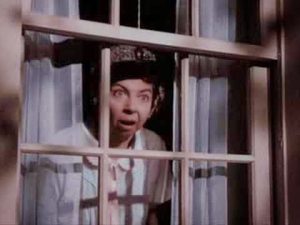A word from Steve
“Your time is limited, don’t waste it living someone else’s life. Don’t be trapped by dogma, living out the results of other people’s thinking. Don’t let the opinions of others drown out your inner voice. Most important, have the courage to follow your heart and your intuition; somehow they already know who you truly want to become.” Steve Jobs
 How do we move from where we are to revealing our inner self — the person we were meant to be? Steve Jobs called it intuition, referring to knowledge that we have without conscious thought. But is it intuition or our conscience that speaks to us as we consider the good we should do?
How do we move from where we are to revealing our inner self — the person we were meant to be? Steve Jobs called it intuition, referring to knowledge that we have without conscious thought. But is it intuition or our conscience that speaks to us as we consider the good we should do?
Leroy Jethro Gibbs, a character in the TV show NCIS, calls intuition his “gut.” It’s such a common theme of the show that Gibbs’ gut should probably get a line in the credits. Of course Gibbs’ gut is never wrong, but NCIS, popular as it is, is still fiction.
Jobs warns us that it is not about considering what we could do, he encourages — and even inspires — us to step out and go about committing to what we could do. He calls us to acknowledge our intuition and to be intentional in pursuing a purpose beyond what the world directs. For Jobs that is part of being authentic, being ourselves.
It sounds easy
People talk about authenticity as if it were simple, but it is a complex characteristic. By definition it implies the intrapersonal nature of self-knowledge about who you really are. Authenticity is also grounded in the interpersonal relationships that connect people to each other. It is developed through the deliberate exercise of honesty, driven by a passion to see ourselves as we really are.
This quest for knowing ourselves didn’t begin with Steve Jobs. Socrates, who preceded Mr. Jobs by around 2,300 years or so, is credited with saying “The unexamined life is not worth living.” The statement had a particular application in his case, but is easily applied to our own cases.
Authenticity is never covered by a mask, never blind to the truth, and always sees through motives, right and wrong. Regardless of the source, we must discover our true self and be authentic by always presenting our true self. This takes a certain amount of courage, because all of us will find things we’d rather not find.
Even the great apostle Paul wrote, “For I do not do the good I want, but the evil I do not want to do—this I keep on doing.”
Don’t be Gladys Kravitz, but do pay attention
How well do you know your neighbors? Are you aware of their comings and goings? Mrs. Kravitz was a neighbor of Darrin and Samantha Stephens on the sitcom Bewitched. Her name has become a euphemism for “nosy neighbor,” the one who knows more about the neighbors than they know about themselves.

That is not good, but being a neighbor does imply more than physical proximity. Are you sufficiently aware of your neighbors that you would know it if they needed help? That takes conscious effort.
Are the relationships you have only informed through the messages of social media, or are they developed through the personal connections of experiencing others and the good you could do in adding to the purpose of their lives?
Are you conscious of having a conscience?
Authenticity might better be explained in understanding the differences between conscience and conscious.
Conscience is an attribute of one’s personality. Accepting the act of doing good out of a clear understanding of right and wrong. Conscience supports our moral foundation, a guide that leads our behavior, and even altruistic purposes for doing good.
Consciousness is an awareness of where you are, moment by moment. Your conscience speaks to you about what is happening around you; being conscious, causes you to act on what you experience and to “do good” in response to those experiences.
In re-reading the opening statement by Steve Jobs, I think he might have said, “Most important, have the courage to follow your heart and your intuition; somehow, they already know the good you truly want to do.” And he would have been right.
Authenticity is driven by hearing our conscience as it continually reminds of us of the good we should do and acting on these promptings by consciously feeling empowered to Do Good.
Do good. It’s in you, and it’s authentic.
Authenticity
A word from Steve
Leroy Jethro Gibbs, a character in the TV show NCIS, calls intuition his “gut.” It’s such a common theme of the show that Gibbs’ gut should probably get a line in the credits. Of course Gibbs’ gut is never wrong, but NCIS, popular as it is, is still fiction.
Jobs warns us that it is not about considering what we could do, he encourages — and even inspires — us to step out and go about committing to what we could do. He calls us to acknowledge our intuition and to be intentional in pursuing a purpose beyond what the world directs. For Jobs that is part of being authentic, being ourselves.
It sounds easy
People talk about authenticity as if it were simple, but it is a complex characteristic. By definition it implies the intrapersonal nature of self-knowledge about who you really are. Authenticity is also grounded in the interpersonal relationships that connect people to each other. It is developed through the deliberate exercise of honesty, driven by a passion to see ourselves as we really are.
This quest for knowing ourselves didn’t begin with Steve Jobs. Socrates, who preceded Mr. Jobs by around 2,300 years or so, is credited with saying “The unexamined life is not worth living.” The statement had a particular application in his case, but is easily applied to our own cases.
Authenticity is never covered by a mask, never blind to the truth, and always sees through motives, right and wrong. Regardless of the source, we must discover our true self and be authentic by always presenting our true self. This takes a certain amount of courage, because all of us will find things we’d rather not find.
Even the great apostle Paul wrote, “For I do not do the good I want, but the evil I do not want to do—this I keep on doing.”
Don’t be Gladys Kravitz, but do pay attention
How well do you know your neighbors? Are you aware of their comings and goings? Mrs. Kravitz was a neighbor of Darrin and Samantha Stephens on the sitcom Bewitched. Her name has become a euphemism for “nosy neighbor,” the one who knows more about the neighbors than they know about themselves.
That is not good, but being a neighbor does imply more than physical proximity. Are you sufficiently aware of your neighbors that you would know it if they needed help? That takes conscious effort.
Are the relationships you have only informed through the messages of social media, or are they developed through the personal connections of experiencing others and the good you could do in adding to the purpose of their lives?
Are you conscious of having a conscience?
Authenticity might better be explained in understanding the differences between conscience and conscious.
Conscience is an attribute of one’s personality. Accepting the act of doing good out of a clear understanding of right and wrong. Conscience supports our moral foundation, a guide that leads our behavior, and even altruistic purposes for doing good.
Consciousness is an awareness of where you are, moment by moment. Your conscience speaks to you about what is happening around you; being conscious, causes you to act on what you experience and to “do good” in response to those experiences.
In re-reading the opening statement by Steve Jobs, I think he might have said, “Most important, have the courage to follow your heart and your intuition; somehow, they already know the good you truly want to do.” And he would have been right.
Authenticity is driven by hearing our conscience as it continually reminds of us of the good we should do and acting on these promptings by consciously feeling empowered to Do Good.
Do good. It’s in you, and it’s authentic.
Get The Do Good U news
We won’t send you spam. Unsubscribe anytime.
Let's Do Some Good
Learn more about our programs.